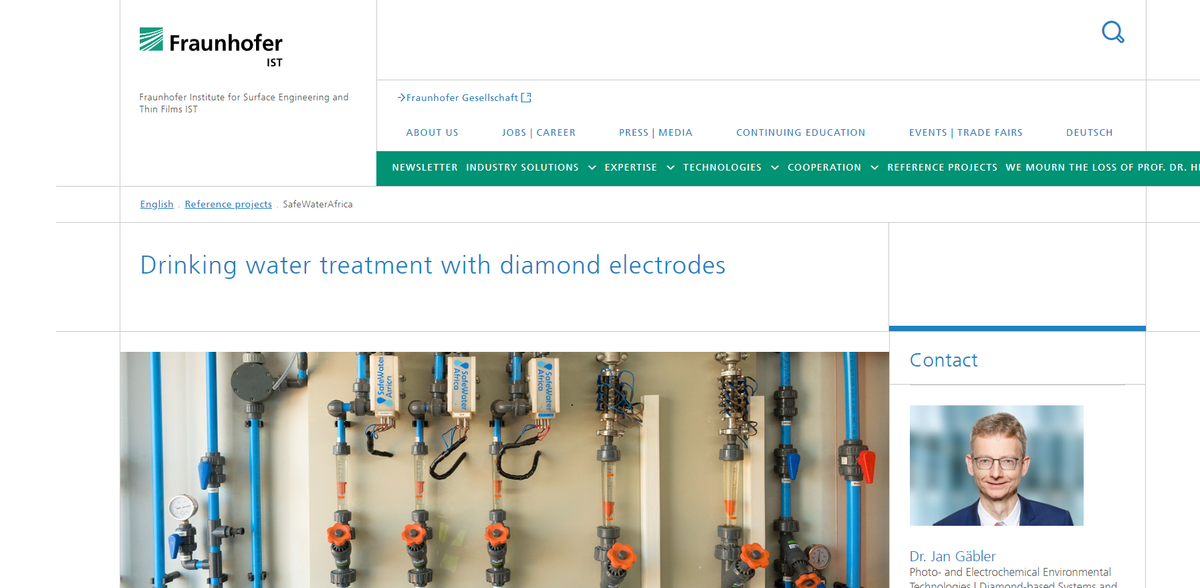What is SafeWaterAfrica?
In 16 sub-Saharan African countries, at least 40 percent of the population—more than 130 million people—have no access to safe water. The SafeWaterAfrica project tackles this challenge head on by researching and developing an autonomous and decentralized “Made in Africa” water treatment system specifically designed for rural and periurban areas. This system is highly efficient in degrading harmful pollutants and is designed to be fully accepted by local communities… The project, coordinated by Fraunhofer IST, blends high-level scientific research with the goal of practical, sustainable water purification.
Main Benefits of SafeWaterAfrica
The project offers several key benefits that contribute to its tremendous impact:
- Over 130 million people in 16 sub-Saharan countries affected by the water crisis
- Demonstrator plants that produce up to 100 m³ of WHO-quality water per day
- Energy self-sufficient operation in South Africa through the use of solar cells and batteries
- Autonomous, decentralized water treatment with a “Made in Africa” focus
- Funded by the European Union’s Horizon 2020 programme under grant agreement No 689925
Innovative Technology in Action
At the heart of SafeWaterAfrica’s success lies the innovative carbon-based electrochemical oxidation (CabECO) technology developed by Fraunhofer IST. This approach utilizes highly effective electrochemical oxidation of critical substances and incorporates metal electrodes coated with diamond—an ingenious twist that generates ozone for disinfection. The purification system goes further by applying additional techniques such as electrocoagulation and electrodialysis for the treatment of inorganic substances (coming from Spain), along with remote system monitoring and quality control (developed in South Africa). This dynamic fusion of technologies means that water is treated efficiently and safely, meeting strict quality criteria, while making full use of renewable energy sources.
Decentralized and Community-Focused System
The SafeWaterAfrica project places a strong emphasis on decentralized, community-friendly implementation. Deployable in containerized form, the purification unit is mobile and can easily be placed in rural areas where water access is most critical. With local partners leading the implementation efforts, the system’s design is both autonomous and accessible, ensuring that even communities with limited infrastructure can benefit from this vital water purification technology. The inclusion of remote system monitoring and quality control means that system performance is continuously checked and maintained, assuring reliability and community trust.
Global Collaboration and Advanced Expertise
This ambitious project is the result of a broad international collaboration that brings together expertise from several renowned institutions. The diverse project partners include:
• The Council for Scientific and Industrial Research (South Africa)
• Salomon Lda (Mozambique)
• CONDIAS GmbH (Germany)
• The University of Ferrara (Italy)
• Gate (a third-party contributor)
• The University of Castilla La Mancha (Spain)
• Advance Call (Pty) Ltd (AC) (South Africa)
• Virtual Consulting Engineers (Pty) Ltd (South Africa)
• Tshwane University of Technology (South Africa)
• Stellenbosch University (South Africa)
• Fraunhofer IST (Coordinator, Germany)
These partners have pooled resources and expertise to create a comprehensive water treatment solution that draws on the best of global environmental technology innovations.
Project Impact: Environmental and Social SDGs
- SDG 6: Clean Water and Sanitation – Ensuring availability and sustainable management of water and sanitation for all.
- SDG 7: Affordable and Clean Energy – Utilizing solar energy systems to power the water treatment plants efficiently.
- SDG 3: Good Health and Wellbeing – Reducing the health risks associated with unsafe water.
- SDG 9: Industry, Innovation and Infrastructure – Showcasing advanced water purification technologies and fostering innovative infrastructure development.
- SDG 11: Sustainable Cities and Communities – Contributing to more sustainable, resilient communities by addressing water scarcity.
Looking Ahead: Sustainable Solutions for Africa
The SafeWaterAfrica project has already demonstrated its value with two successful demonstrator plants in Mozambique and South Africa. The pilot plant in South Africa, complete with solar panels and batteries, achieves energy self-sufficiency, while the containerized unit in Mozambique underscores the flexibility and mobility of the system. This real-world validation paves the way for further development and optimization. Fraunhofer IST, leveraging the know-how gained from this innovative project, is focused on developing application-optimized cells that promise to enhance efficiency even further. The project not only addresses current water challenges but also lays the foundation for sustainable water management practices that could be expanded across other regions in need.






















